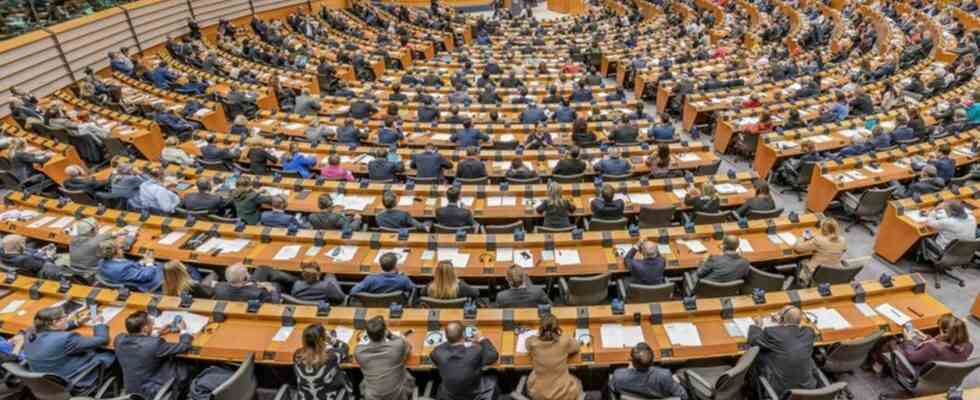environmental Protection
New attempt for important climate vote in the EU Parliament
The MEPs vote on part of the EU climate package in the second attempt (archive photo). Photo: Michael Kappeler/dpa
© dpa-infocom GmbH
The European Parliament votes on the reform of a core part of European climate policy – for the second time. The first attempt had failed. A Green member of parliament calls the new compromise historic, but not in a good sense.
After the voting debacle two weeks ago, the EU Parliament is making a new attempt this afternoon to vote on an important part of the EU climate package “Fit for 55”.
It is about a new compromise for the reform of the EU emissions trading system (ETS) as well as a climate social fund and the introduction of a CO2 tariff at the EU’s external borders.
After the project at the last plenary session no longer contained enough climate protection for many MPs due to various amendments, it was rejected. A crucial role was played by the Social Democrats, who joined the camp at the last minute, which ended up rejecting the paper.
New compromise found
Last week, Christian Democrat, Liberal and Social Democrat MEPs then agreed on the new compromise on important climate protection laws, which is also supported by the Greens. “The minimum standard for climate protection has thus been met,” said Green MP Michael Bloss, assessing the compromise. Limiting global warming to no more than 1.5 degrees compared to pre-industrial times is no longer achievable. This is “historic”.
Among other things, the new compromise stipulates that the free allocation of certificates for CO2 emissions should gradually be phased out from 2027 and disappear completely from 2032. There are also plans to expand emissions trading to include buildings and transport.
Emissions trading at the heart of EU climate policy
The ETS is at the heart of EU climate policy. Certain industries have to pay for the emission of climate-damaging gases such as CO2. Until recently, there was a heated debate about whether the system should also be extended to buildings and transport, because it was feared that consumers would then have to pay even more for heating and driving. In Germany and other EU countries, these areas are already part of emissions trading. In addition, the climate social fund is intended to relieve the burden on citizens.
According to the climate policy spokesman for the Social Democratic Group in the European Parliament, Tiemo Wölken, all sides have moved towards each other. “The result shows that it was right not to approve the report last week, which would have decisively watered down emissions trading.”
His CDU colleague Peter Liese praised the compromise last week because it also provides for a slower start of CO2 tariffs. If this tariff does not work as expected, there will also continue to be free pollution certificates, said Christian Ehler, a member of the CDU.
With the vote, however, initially only the position of Parliament is determined. There may still be changes in negotiations with EU countries. However, it is still unclear what these could look like, since the states have not yet agreed on a common position.

